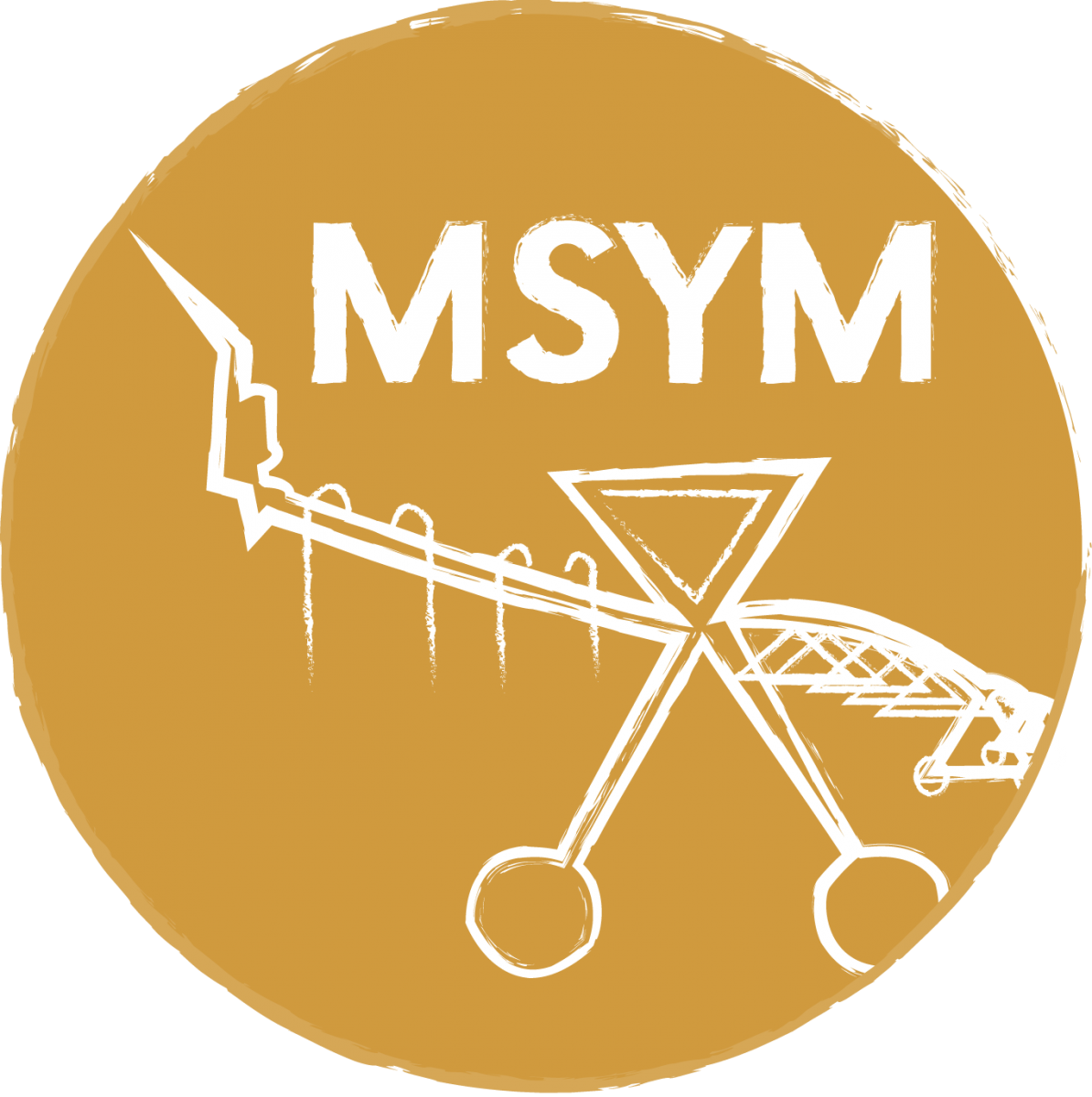If you like figuring out how machines work, making them efficient, and testing the results, this is the specialization for you.  You'll be prepared for employment in the fields of equipment test technician, service manager or production supervisor of mechanized systems, regional service representative, or associate for agricultural research and extension. Students apply additional mathematics and physical sciences to resolve problems in engineered systems. This option will also prepare an individual for graduate study.
You'll be prepared for employment in the fields of equipment test technician, service manager or production supervisor of mechanized systems, regional service representative, or associate for agricultural research and extension. Students apply additional mathematics and physical sciences to resolve problems in engineered systems. This option will also prepare an individual for graduate study.



 You'll be prepared for employment in the fields of equipment test technician, service manager or production supervisor of mechanized systems, regional service representative, or associate for agricultural research and extension. Students apply additional mathematics and physical sciences to resolve problems in engineered systems. This option will also prepare an individual for graduate study.
You'll be prepared for employment in the fields of equipment test technician, service manager or production supervisor of mechanized systems, regional service representative, or associate for agricultural research and extension. Students apply additional mathematics and physical sciences to resolve problems in engineered systems. This option will also prepare an individual for graduate study.Required Classes:

Resource-Efficient Crop Management
Integration of principles of crop and soil science, plant breeding, climatology and integrated pest management in the development and evaluation of crop management practices. Efficient use of solar radiation, water, nutrients, heat, carbon dioxide, and other resources in field crop management.
or
Animal Management
Principles of managing animals in typical production systems. Basics of managing beef, dairy, horses, poultry, sheep, and swine through the life cycle for economic and efficient production.
Analytic Geometry & Calculus I
Functions of one variable, limits, differentiation, exponential, trigonometric and inverse trigonometric functions, maximum-minimum, and basic integration theory (Riemann sums) with some applications.
Internship in Mechanized Systems
Practical experience, directed learning, and career exploration and development in a selected business, industry, agency, or educational institution.
or
Industrial Safety
Identifies safety and health risks in industrial work environments. Focus on how managers and supervisors meet their responsibilities for providing a safe workplace for their employees. Includes the identification and remediation of workplace hazards. Online course offered by Iowa State University through the AG*IDEA consortium. Contact CASNR Distance Education Consortium Coordinator for course details, prerequisites and registration information.
Integration of principles of crop and soil science, plant breeding, climatology and integrated pest management in the development and evaluation of crop management practices. Efficient use of solar radiation, water, nutrients, heat, carbon dioxide, and other resources in field crop management.
or
Animal Management
Principles of managing animals in typical production systems. Basics of managing beef, dairy, horses, poultry, sheep, and swine through the life cycle for economic and efficient production.
Analytic Geometry & Calculus I
Functions of one variable, limits, differentiation, exponential, trigonometric and inverse trigonometric functions, maximum-minimum, and basic integration theory (Riemann sums) with some applications.
Internship in Mechanized Systems
Practical experience, directed learning, and career exploration and development in a selected business, industry, agency, or educational institution.
or
Industrial Safety
Identifies safety and health risks in industrial work environments. Focus on how managers and supervisors meet their responsibilities for providing a safe workplace for their employees. Includes the identification and remediation of workplace hazards. Online course offered by Iowa State University through the AG*IDEA consortium. Contact CASNR Distance Education Consortium Coordinator for course details, prerequisites and registration information.
Management Electives:
Select two courses [6 hours]
Select two courses [6 hours]

Agribusiness Management
Business strategies for agribusiness firms under various market environments, asymmetric information problems that may lead to inefficient market outcomes. Game theory as a formal tool of studying conflict and cooperation in oligopolistic agri-food markets.
Management Essentials for Contemporary Organizations
This course is designed to introduce students from non-business fields to the role of managers in various organizational structures and types. Students will explore how the practice of management is relevant to their chosen field of study or academic discipline. This course will provide an analysis of organizations and the management processes of planning, organizing, directing and controlling. Individual, group, intergroup and organizational responses to various environments and technologies are studied as well as pertinent techniques of human capital management.
Personnel/Human Resource Management
Introductory course that approaches Human Resource Management from the perspective of the human resource professional and the individual manager or supervisor. Presents the integrated nature of human resource management and the operation of human resource policies and principles in the contemporary organizational environment. Materials will cover the challenges and opportunities faced by those who are charged with responsibility for acquisition, management, development, and retention of organizational human capital. Provides an overview of the typical human resource functions and requisite decision making in those areas.
Business strategies for agribusiness firms under various market environments, asymmetric information problems that may lead to inefficient market outcomes. Game theory as a formal tool of studying conflict and cooperation in oligopolistic agri-food markets.
Management Essentials for Contemporary Organizations
This course is designed to introduce students from non-business fields to the role of managers in various organizational structures and types. Students will explore how the practice of management is relevant to their chosen field of study or academic discipline. This course will provide an analysis of organizations and the management processes of planning, organizing, directing and controlling. Individual, group, intergroup and organizational responses to various environments and technologies are studied as well as pertinent techniques of human capital management.
Personnel/Human Resource Management
Introductory course that approaches Human Resource Management from the perspective of the human resource professional and the individual manager or supervisor. Presents the integrated nature of human resource management and the operation of human resource policies and principles in the contemporary organizational environment. Materials will cover the challenges and opportunities faced by those who are charged with responsibility for acquisition, management, development, and retention of organizational human capital. Provides an overview of the typical human resource functions and requisite decision making in those areas.
MSYM Electives:
Select four courses [12 hours]
Select four courses [12 hours]

Equipment Principles
Operational characteristics of field, farmstead materials handling, processing and turf maintenance machines and their components. Includes objective comparisons of performance, principles for alignment and adjustment, calibration of metering systems and standards necessary for effective operational management of machines.
Animal Housing Systems
Production facilities for livestock and poultry will be developed with emphasis on building and feedlot layout, ventilation, heating and cooling systems; energy utilization; and construction materials and methods.
Hydraulic Power Systems
Theory and application of fluids under controlled pressure to perform work in mobile and industrial applications. Operation of components and functional planning of circuits with emphasis on troubleshooting and analysis.
Site-specific Crop Management
Principles and concepts of site-specific management. Evaluation of geographic information systems for crop production practices. Practical experience with hardware and software necessary for successful application of information affecting crop management.
Equipment & Tractor Testing
Principles and procedures involved in testing agricultural equipment and tractors. Actual test planned, scheduled, conducted and reported. Test may be based upon procedures used at the Nebraska Tractor Testing Laboratory or involve other equipment being used for research in the department.
Irrigation Systems Management
Irrigation management and the selection, evaluation, and improvement of irrigation systems. Includes soil-water measurement, crop water use, irrigation scheduling, irrigation efficiency, measurement of water flow, irrigation systems, groundwater and wells, pumping systems, applying chemicals with irrigation systems, and environmental and water resource considerations. Two laboratory sections are available; one which emphasizes agricultural applications and one which emphasizes horticultural applications.
Operational characteristics of field, farmstead materials handling, processing and turf maintenance machines and their components. Includes objective comparisons of performance, principles for alignment and adjustment, calibration of metering systems and standards necessary for effective operational management of machines.
Animal Housing Systems
Production facilities for livestock and poultry will be developed with emphasis on building and feedlot layout, ventilation, heating and cooling systems; energy utilization; and construction materials and methods.
Hydraulic Power Systems
Theory and application of fluids under controlled pressure to perform work in mobile and industrial applications. Operation of components and functional planning of circuits with emphasis on troubleshooting and analysis.
Site-specific Crop Management
Principles and concepts of site-specific management. Evaluation of geographic information systems for crop production practices. Practical experience with hardware and software necessary for successful application of information affecting crop management.
Equipment & Tractor Testing
Principles and procedures involved in testing agricultural equipment and tractors. Actual test planned, scheduled, conducted and reported. Test may be based upon procedures used at the Nebraska Tractor Testing Laboratory or involve other equipment being used for research in the department.
Irrigation Systems Management
Irrigation management and the selection, evaluation, and improvement of irrigation systems. Includes soil-water measurement, crop water use, irrigation scheduling, irrigation efficiency, measurement of water flow, irrigation systems, groundwater and wells, pumping systems, applying chemicals with irrigation systems, and environmental and water resource considerations. Two laboratory sections are available; one which emphasizes agricultural applications and one which emphasizes horticultural applications.
After Graduation:
After completing a B.S. in Mechanized Systems Management with an emphasis in Technical, many graduates find work in multiple different directions. Some paths include employment as equipment test technicians, service managers, production superviors of mechanized systems, regional service representatives, or associates for agricultural research and extension. There are also students who choose to continue with their education and pursue advanced degrees.